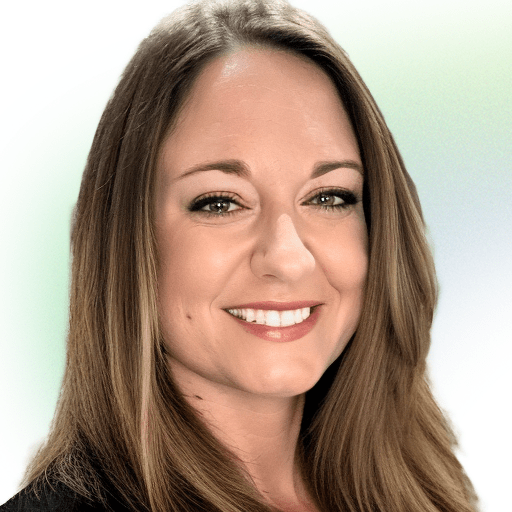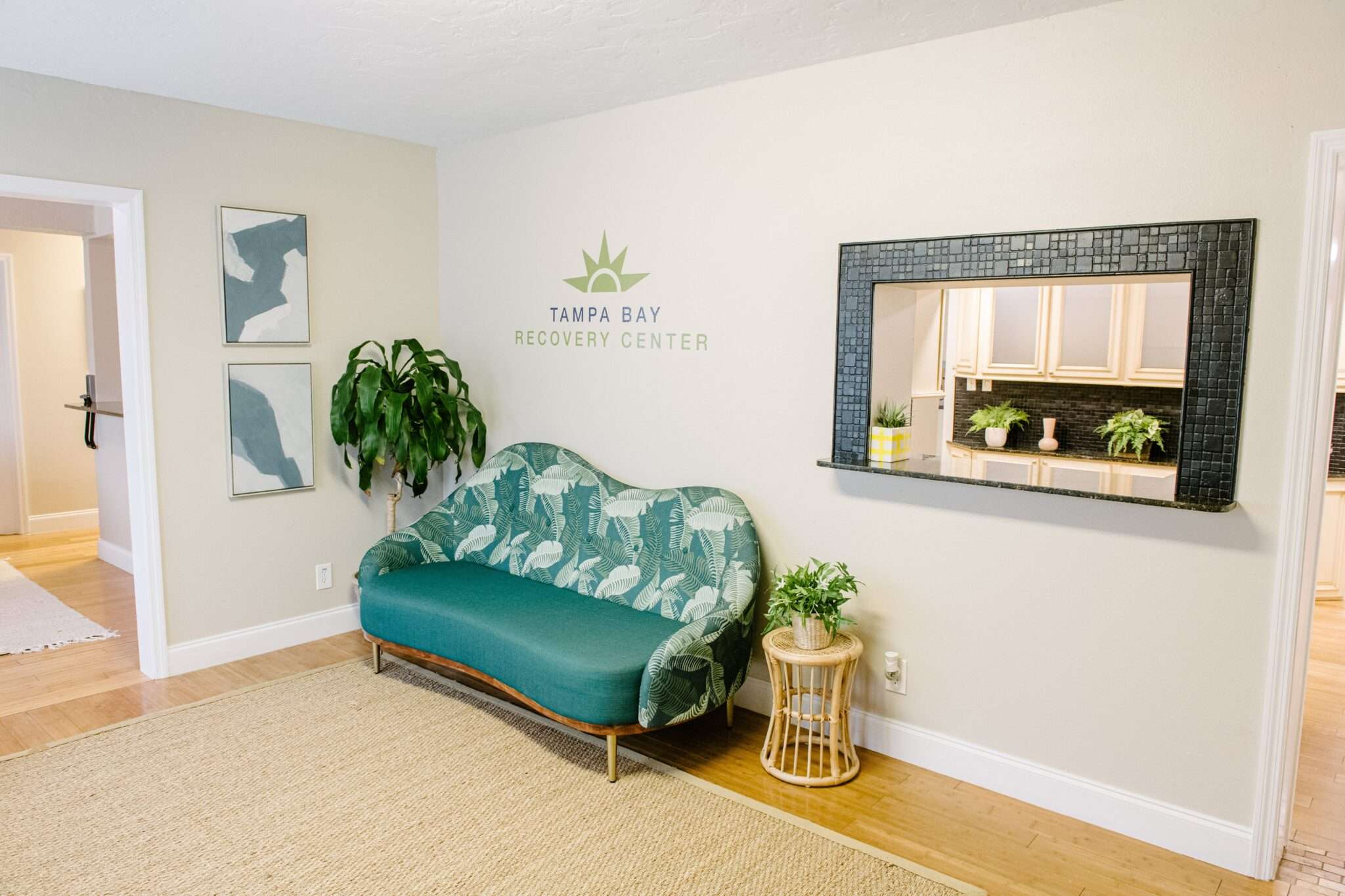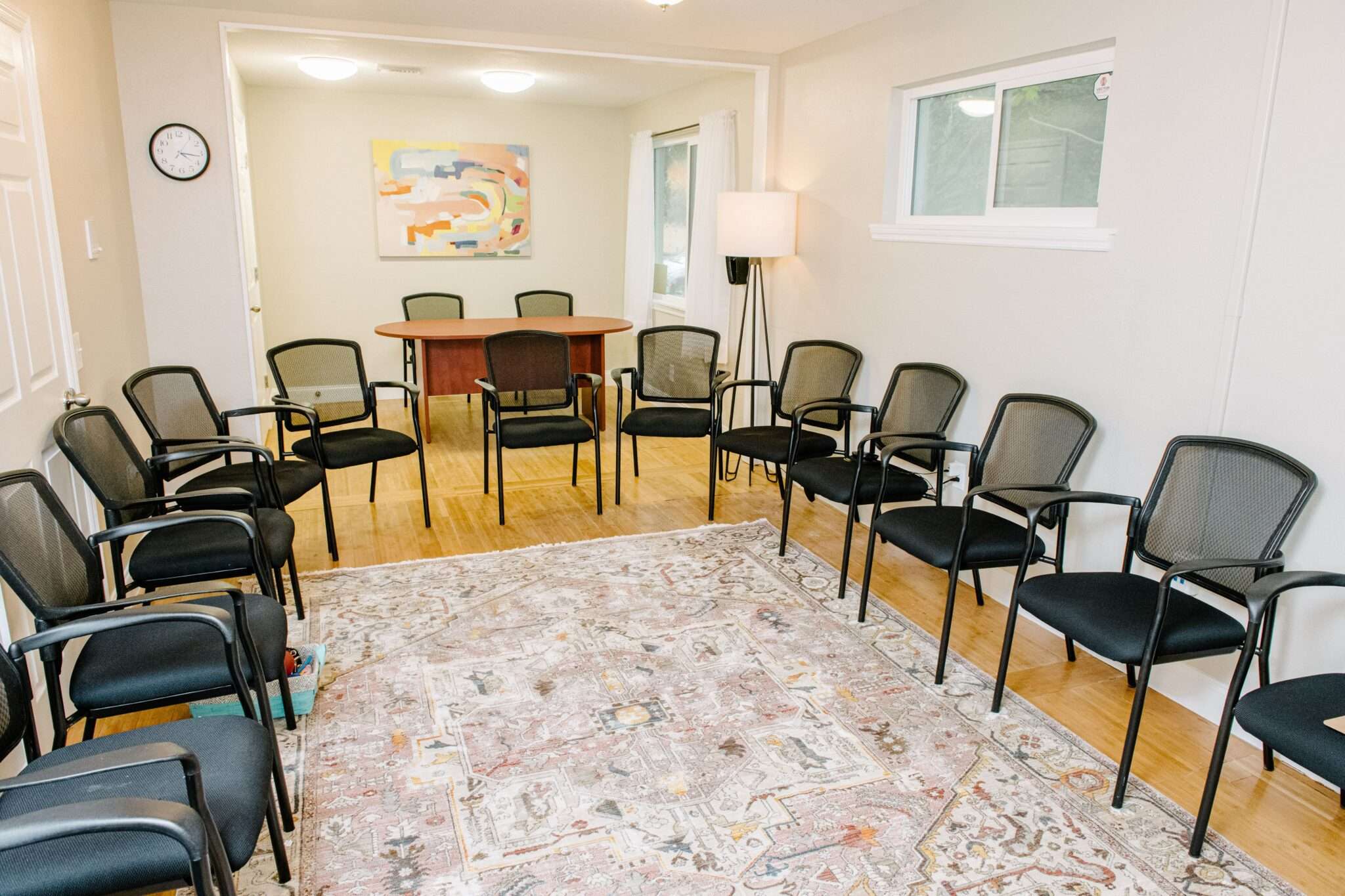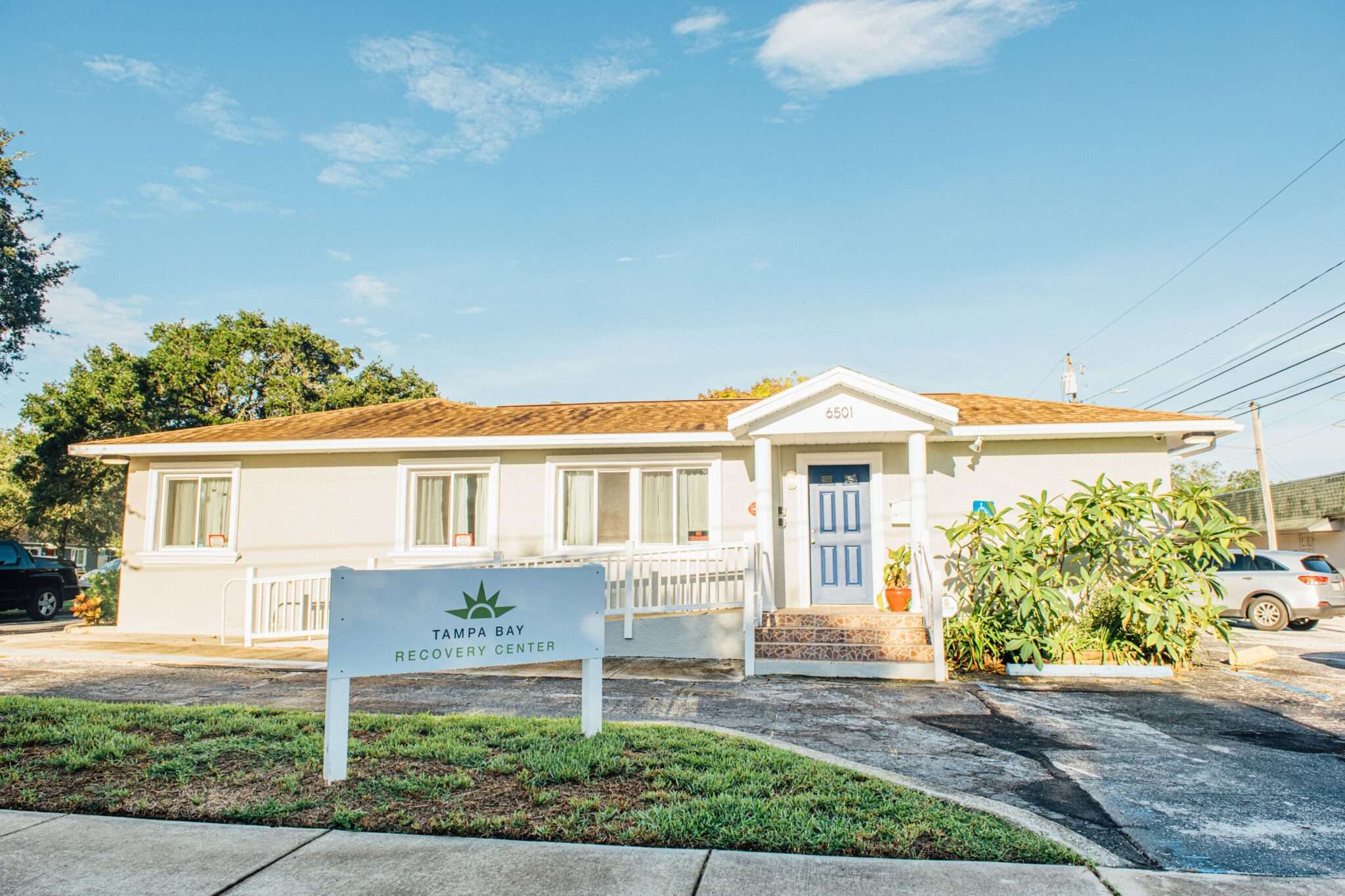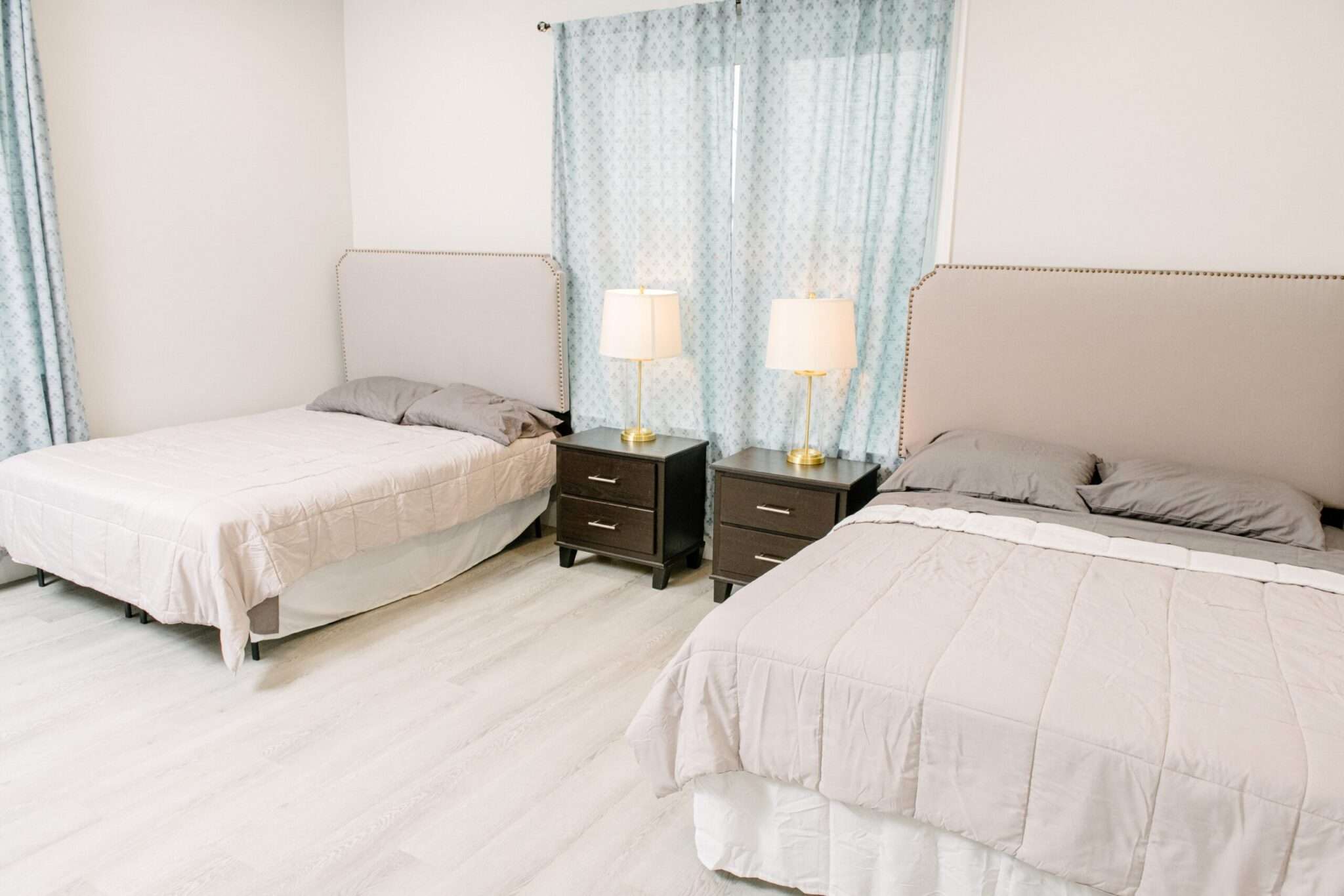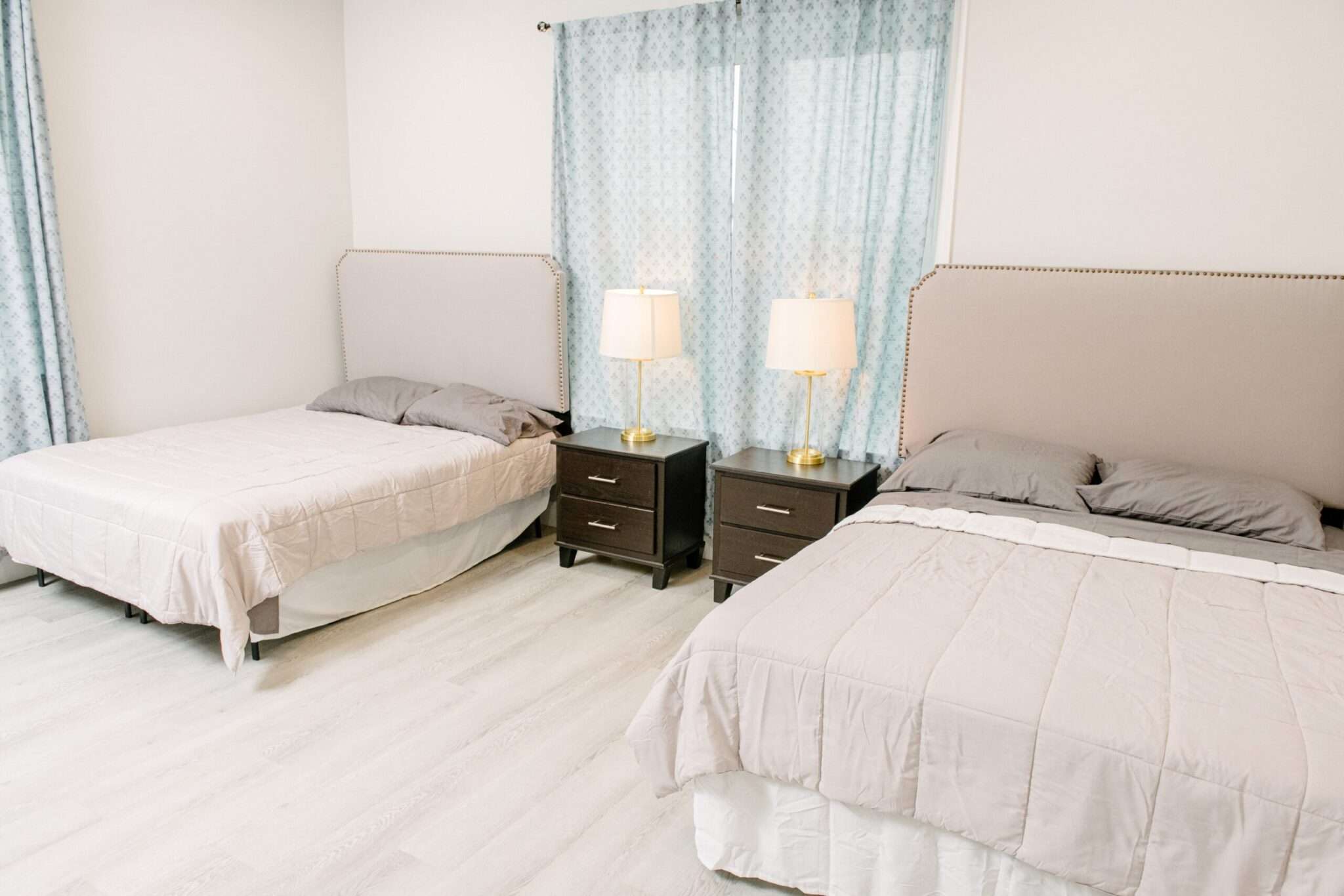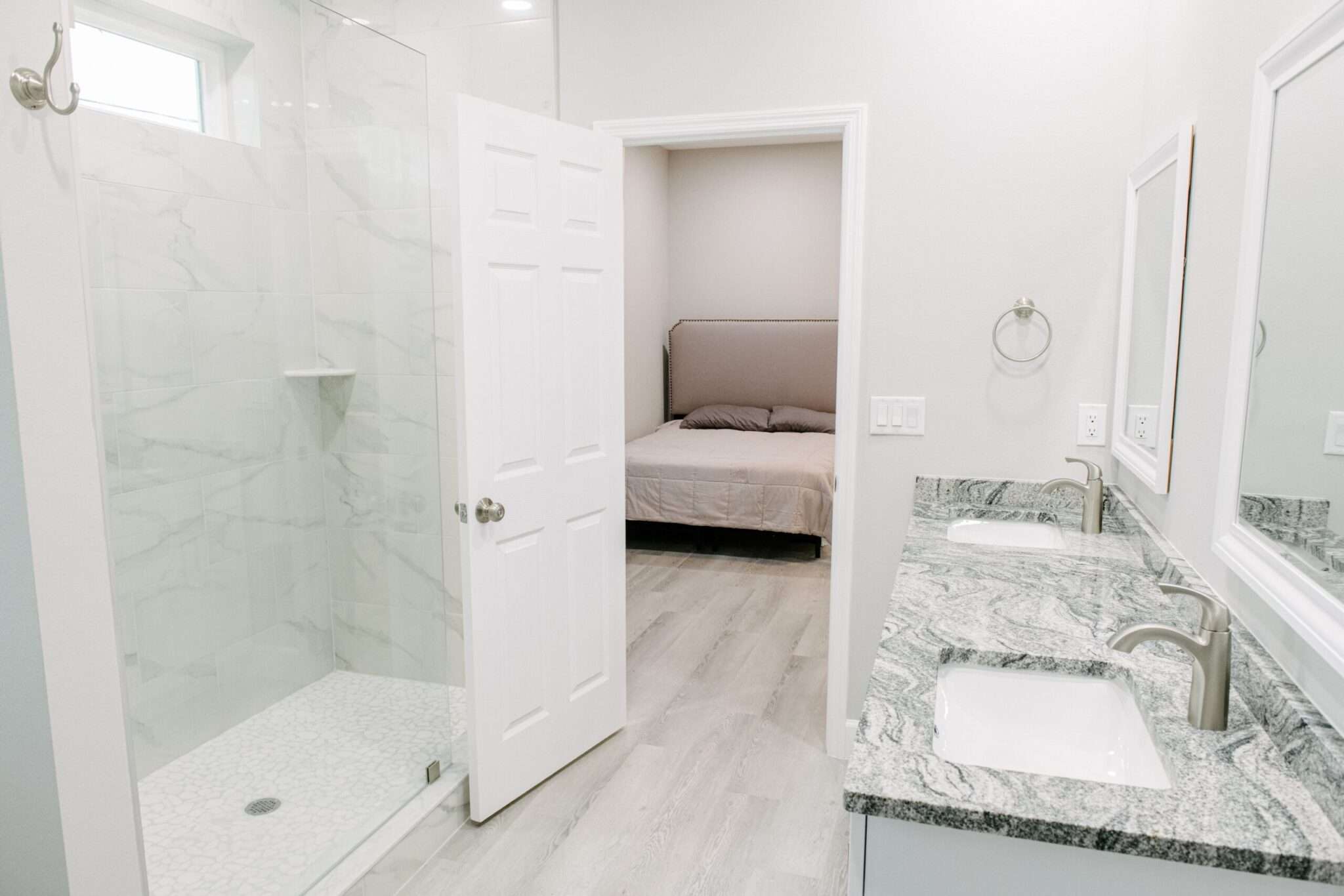If your symptoms are severe, you can get disability for anxiety and depression. The Social Security Administration (SSA) provides benefits for those who struggle to find or maintain gainful employment due to mental health disorders. Along with anxiety and depression, other disorders, such as bipolar disorder, obsessive-compulsive disorder (OCD), and schizophrenia, may qualify for disability benefits.
Severe symptoms of any mental health disorder can be debilitating. However, no matter how severe your symptoms are, there is always hope to get better. Even if your anxiety or depression qualifies as a disability, our mental health treatment programs in Tampa can help you find healthy coping skills to improve your quality of life.
What is a Disability?
The Americans with Disabilities Act (ADA) defines “[a] person with a disability [as] someone who:
- has a physical or mental impairment that substantially limits one or more major life activities,
- has a history or record of such an impairment (such as cancer that is in remission), or
- is perceived by others as having such an impairment (such as a person who has scars from a severe burn).”
Any one of these categories qualifies as a disability. Thus, despite being non-visible, mental health disorders can be considered a disability if they fall under either of the other categories.
Can Anxiety and Depression Be Considered a Disability?
Anxiety and depression can be considered a disability under the definition by the ADA. Anxiety and depression are among the most common mental health disorders, and most people have mild symptoms. But, some people’s experiences are more debilitating than others.
Some people have a genetic predisposition to severe mental health symptoms. Others get severe symptoms following catastrophic events, like trauma, loss of a loved one, or physical impairments. Still, others have a condition called treatment-resistant depression (TRD), and it takes a long time for them to experiment with different types of treatments before they see results.
The SSA offers a list of mental disorders that qualify for disability. But what does it mean to have anxiety or depression so severe that it qualifies as a disability?
What Does Severe Anxiety Look Like?
Severe anxiety disorders can limit your ability to get or maintain a job. For instance, your anxiety could be so intense that you can’t get through a job interview. In extreme cases, you could struggle to even leave your home due to a specific phobia, like contamination or riding in a car.
People with severe anxiety could also have unpredictable panic attacks. This can severely limit their ability to perform many jobs and could even inhibit their ability to operate a vehicle. Severe anxiety can also be the result of other disorders, such as obsessive-compulsive disorder (OCD) or post-traumatic stress disorder (PTSD).
Some jobs can provide reasonable accommodations and support to help you. Still, these types of jobs might not be available to you, or you cannot work a full-time schedule due to your symptoms. If this is the case, you could qualify for disability benefits.
What Does Severe Depression Look Like?
Severe depression can cause dangerous symptoms including suicidal ideation and self-harming behaviors. On top of that, if you have severe depression, you might lack the energy to perform basic tasks of daily living. These include things like keeping up with housework and personal hygiene.
In addition, severe depression comes with physical symptoms such as sleeping problems and fatigue. It could be a struggle for you to get out of bed most days, and you barely have enough energy to eat. Severe depression can also come with symptoms of psychosis where you see, feel, and hear things that aren’t real.
Severe depression could also be a symptom related to another mental health disorder, such as schizophrenia or bipolar disorder.
How Do I Get Disability for Anxiety and Depression?
Remember that even severe symptoms of anxiety and depression can get better with treatment. However, if you have severe symptoms that inhibit your ability to work for 12 months or longer—even with treatment—you might be able to get disability benefits.
The first step is getting a diagnosis from a psychiatrist or other qualified mental health professional. You could even talk to your family doctor about your symptoms, as they could help you identify the cause and rule out any medical issues that cause similar symptoms. That way, you can get a better understanding of what is happening and have the required documentation of your disability.
The SSA provides information on how to apply by completing an application online or calling in. Depending on the type of benefit you need, however, you might need to come into your nearest SSA office to start the process. This will begin the process, but you will still need to prove your disability before you get benefits. This process could take several months and will require sharing medical records as well as interviews with you.
If you need help with severe anxiety or depression, it is important for you to find treatment. Even if you are permanently disabled from working, that doesn’t mean you can’t find relief from your symptoms. You can find healthy ways to cope with anxiety and depression to keep your symptoms from regressing even further.
Get Help for Anxiety and Depression in Tampa, FL
At Gulf Coast Recovery Center in Tampa, Florida, we offer mental health treatment for disorders like anxiety, depression, OCD, PTSD, and bipolar disorder. Our program has evidence-based treatments that include holistic therapies that could alleviate your most severe symptoms.
Contact us today to get help for severe anxiety and depression.

